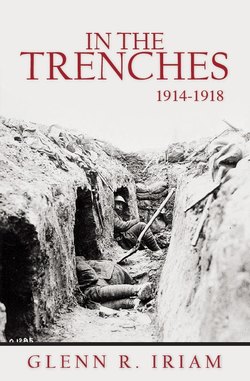Читать книгу In The Trenches 1914-1918 - Glenn Ph.D. Iriam - Страница 10
На сайте Литреса книга снята с продажи.
England
ОглавлениеAlick fresh from home had no stomach for looking over the city of the big smoke so we did not linger long in London and went directly back to the battalion. We found the River Avon in flood with bridges submerged and some whole villages under water. We had to make some detours and cross some submerged bridges on our way back to the plains.
About this time there started to be a lot of agitation in the First Division about discarding Canadian manufactured equipment. Where this was started and how it was carried through to fruition is probably only known to a few. The O. C. of the division at this time was General Alderson an English officer of the old school or South African war vintage. The rank and file being over 50 percent of old country birth were very strongly prejudiced in favor of things of English make. A contract to supply all the equipment to the Canadian government for the balance of the campaign meant millions of good money to someone. It was easy to get complaints enough from the rank and file to make a strong showing. The native Canadian of an observing turn of mind has his own ideas about how the thing was engineered. The taxpayer at home today is still paying the bill. Poor old Sam Hughes protested at the time in no uncertain voice but he was drowned out and swamped out as thoroughly as our equipment that was stored in a basement warehouse at Salisbury in readiness for the annual flooding of the Avon. That is as regular as the tides and well known to the Imperial authorities. Motor lorries, dray wagons, Indian motorcycles, clothing, boots and rifles, were condemned for active service use. We were re equipped for overseas almost wholly with English made goods. I would like to know the personal history of the committee of inspectors who went the rounds with Alderson and clinched the deal at Salisbury Plains. Canada paid dearly for her ignorance about things in the military. We had no one in a position to say to them “nay”.
The division was beginning to look and act like troops and it was decided to have an inspection by Earl Kitchener. We were all pleased at the prospect of seeing this old warrior. We had read so much, heard so much of that old lion that I think he had found a place in the corner of all of our hearts and we looked forward to seeing him in person. Our interest in him was different from the interest taken in Royalty and other celebrities. A thing distinct. I was not disappointed in him on first sight and he looked every inch the part he played in the drama of the Empire on its outer and rougher edges. There was the stamp of the deserts and raw wild lands in him. I still believe in him in spite of the carping, place seeking politicians who besmirched him before and after his death. He had an eye that seemed to look through and through you and a face like the face of the Rocky Mountains. His name will stand after his critics are mostly forgotten.
The raw lands know it and fierce suns glare
The Dervish breathes it at his evening Prayer
As well to sneer at the old Union Jack itself as at him
The poor little (street bred) people
That sputter, and fume and brag
And lift their voice in the stillness
To yelp at the British flag
We must have made a fairly favorable impression as to fitness for service for we soon heard rumors of something doing about our going overseas. We were taken on route marches with full equipment occasionally. One day we did not return to camp but were entrained and found ourselves in Avonmouth, the Port of Bristol, went aboard ship there and left Old England on the lee “sheltered”.
